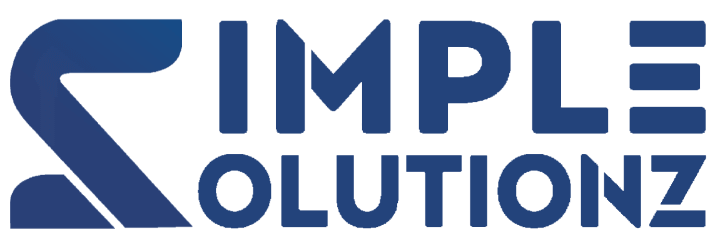It’s undeniable that digital marketing has shifted completely to get their audience’s attention. It doesn’t matter what business you run; you should consider the best marketing solutions and tools to successfully stand out in the marketplace.
Do you need clarification about taking the step? It’s time to take control of your business with effective marketing solutions. Let’s explore nine powerful tactics that will help your client’s companies to flourish:
Contents
- 1. Embrace the Organic Powerhouse: Search Engine Optimization (SEO)
- 2. Content is King: Reign Supreme with Content Marketing
- 3. Master the Social Media Jungle: Cultivate Community and Engagement
- 4. Get Local: Optimize for Local Search Domination
- 5. The Unsung Hero: Email Marketing’s Enduring Power
- 6. Paid Advertising: A Targeted Boost When You Need It
- 7. Influencer Marketing: Leverage Credibility and Trust
- 8. Online PR and Reputation Management
- 9. Analytics: Measure, Analyze, and Refine for Continued Success
- Empowering Small Businesses, One Click at a Time
1. Embrace the Organic Powerhouse: Search Engine Optimization (SEO)
Imagine customers effortlessly finding your client’s business on Google through relevant searches. SEO makes this dream a reality. By optimizing website content, structure, and backlinks, we ensure search engines recognize your client’s offerings as valuable, ranking them higher in search results. This organic traffic translates to targeted leads and potential customers actively seeking your client’s services.
➡️ On-Page SEO: Optimizing individual web pages to rank higher and earn more targeted traffic in search engines.
➡️ Off-Page SEO: Building authority and relevance through external factors like backlinks and social signals.
➡️ Local SEO: Targeting local customers by optimizing online listings and local content.
2. Content is King: Reign Supreme with Content Marketing
In today’s information-hungry world, captivating content is key. Craft blog posts, articles, infographics, or videos that educate, entertain, and engage your client’s target audience. Share valuable insights, address their pain points, and highlight expertise. Consistent, high-quality content establishes your client as a thought leader, builds trust, and nurtures leads through the sales funnel.
➡️ Content Strategy: Develop a plan to create and distribute content that aligns with business goals and audience interests.
➡️ Content Creation: Producing several types of content, including blog posts, eBooks, videos, and podcasts.
➡️ Content Distribution: Sharing content across different platforms and channels to reach a wider audience.
3. Master the Social Media Jungle: Cultivate Community and Engagement
From Facebook to Instagram, LinkedIn to TikTok, each platform offers specific opportunities to connect with your client’s ideal customers. Develop targeted social media strategies that leverage the strengths of each platform. Foster conversations, participate in relevant groups and run engaging campaigns to boost brand awareness, build loyalty, and drive conversions.
➡️ Platform Selection: Considering the right social media platforms based on target audience demographics and preferences.
➡️ Content Strategy: Planning and creating content tailored to each platform and audience segment.
➡️ Community Engagement: Building relationships with followers through interaction, responding to comments, and addressing customer inquiries.
4. Get Local: Optimize for Local Search Domination
For brick-and-mortar businesses, local SEO is like striking gold. By claiming and optimizing your client’s Google My Business listing, ensuring consistent NAP (Name, Address, Phone number) across directories, and encouraging positive online reviews, you increase the chances of local customers finding them online. This translates to more foot traffic, phone calls, and in-store sales.
5. The Unsung Hero: Email Marketing’s Enduring Power
Email marketing might seem old-fashioned, but its effectiveness remains undeniable. Build an email list with opt-in forms and lead magnets, then craft targeted email campaigns. Share exclusive offers, valuable content, and personalized updates to nurture leads, re-engage dormant customers, and drive sales. Email marketing boasts an impressive ROI (return on investment), making it a cost-effective powerhouse.
➡️ List Building: Growing an email subscriber list through website sign-ups, lead magnets, and other opt-in methods.
➡️ Segmentation: Dividing email subscribers into smaller groups based on demographics, behaviors, or interests.
➡️ Automation: Streamlining email campaigns with automated workflows for welcome emails, abandoned cart reminders, and follow-ups.
6. Paid Advertising: A Targeted Boost When You Need It
While organic strategies are crucial, sometimes a paid push is necessary. Google Ads and social media advertising platforms afford granular targeting options, allowing you to reach specific demographics, interests, and locations.
Run targeted ad campaigns to promote exclusive offers, generate leads, or drive traffic to high-converting landing pages. Remember to track and analyze campaign performance to optimize results and maximize your client’s budget.
➡️ Keyword Research: Identifying relevant keywords with high search volume and buyer intent.
➡️ Ad Creation: Crafting compelling ad copy and visuals that entice users to click.
➡️ Campaign Optimization: Monitoring performance metrics and adjusting to improve ad performance and ROI.
7. Influencer Marketing: Leverage Credibility and Trust
Partnering with relevant influencers in your client’s niche can unlock immense potential. Influencers have established audiences who trust their recommendations. By collaborating on authentic content creation, product reviews, or social media mentions, you can tap into this trust and reach a wider audience, boosting brand awareness and driving sales.
➡️ Influencer Identification: Research and select influencers whose audience aligns with the business’s target market.
➡️ Partnership Negotiation: Establishing mutually beneficial partnerships with influencers, including compensation and content expectations.
➡️ Campaign Measurement: Tracking key metrics to evaluate the effectiveness of influencer partnerships and ROI.

8. Online PR and Reputation Management
Maintaining a positive online reputation is essential for small businesses to attract and retain customers. Online PR strategies, such as press releases, guest blogging, and online review management, can help businesses highlight their expertise, address customer concerns, and build trust with their audience.
➡️ Brand Monitoring: Monitoring online mentions of the business to address any negative feedback or reputation issues promptly.
➡️ Review Management: Empowering satisfied customers to leave positive reviews and addressing negative reviews professionally and constructively.
➡️ Crisis Communication: Develop a plan to manage and respond to PR crises or reputation threats effectively.
9. Analytics: Measure, Analyze, and Refine for Continued Success
Data is your friend! Implement website analytics tools like Google Analytics or social media platform insights to track website traffic, audience demographics, campaign performance, and conversion rates. Analyze this data regularly to understand what’s working, what’s not, and where to optimize your client’s online marketing efforts. Remember, data-driven decisions lead to better results.
➡️ Data Collection: Implementing tools like Google Analytics to track website traffic and user behavior.
➡️ Performance Reporting: Generating regular reports to measure the success of marketing campaigns and initiatives.
➡️ Optimization Strategies: Using insights from data analysis to refine marketing strategies and tactics for better results.
Empowering Small Businesses, One Click at a Time
By offering these solutions, your digital marketing agency can empower small businesses to thrive online. However, success lies in a comprehensive approach, tailoring the strategy to each client’s needs and goals. As you guide them through the ever-evolving digital landscape, watch their businesses transform from small buds into towering sequoias, dominating their online niche.

